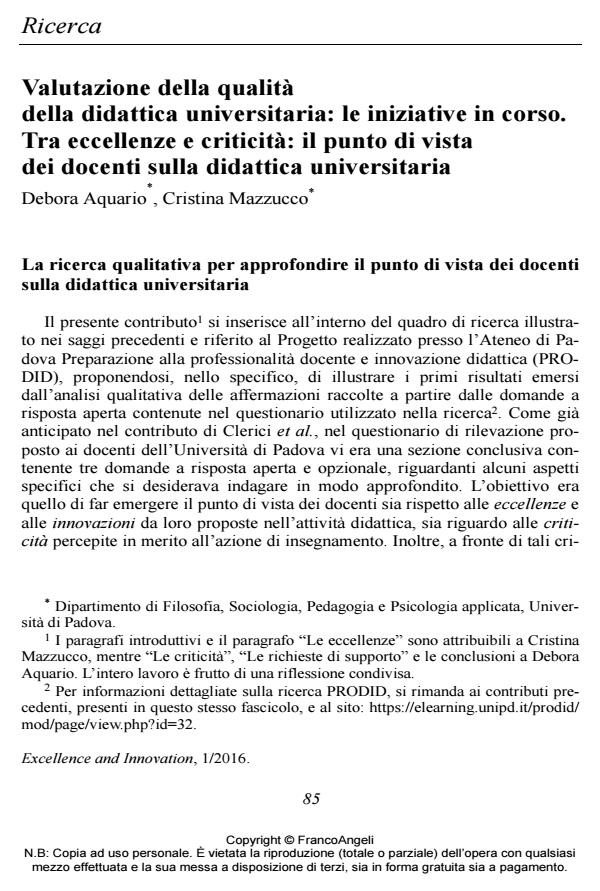Excellences and critical aspects: teachers’point of view about teaching in higher education
Journal title EXCELLENCE AND INNOVATION IN LEARNING AND TEACHING
Author/s Debora Aquario, Cristina Mazzucco
Publishing Year 2016 Issue 2016/1
Language Italian Pages 20 P. 85-104 File size 570 KB
DOI 10.3280/EXI2016-001006
DOI is like a bar code for intellectual property: to have more infomation
click here
Below, you can see the article first page
If you want to buy this article in PDF format, you can do it, following the instructions to buy download credits

FrancoAngeli is member of Publishers International Linking Association, Inc (PILA), a not-for-profit association which run the CrossRef service enabling links to and from online scholarly content.
The aim of the present paper is to illustrate the first results deriving from the qualitative analysis of open questions included in PRODID (Teacher professional development and academic educational innovation) Question¬naire. The questions have been formulated in order to collect the point of view of teachers about excellences and innovations, perceived critical aspects in their teaching practice and the need of support for the improvement of teaching. The analysis has been realized through the use of software Atlas.ti. In particular, the analysis has been developed in order to underline strengths and weaknesses as well as the necessary support for the improvement of teaching and teacher professionalism. Findings are presented illustrating the distributions based on the School (context in which the single course is realized) as well as the thematic issues emerged from teachers’ answers. Thematic issues are then discussed on the basis of the related scientific literature.
Keywords: Teaching in higher education; good teaching; qualitative research.
Debora Aquario, Cristina Mazzucco, Valutazione della qualità della didattica universitaria: le iniziative in corso. Tra eccellenze e criticità: il punto di vista dei docenti sulla didattica universitaria in "EXCELLENCE AND INNOVATION IN LEARNING AND TEACHING" 1/2016, pp 85-104, DOI: 10.3280/EXI2016-001006